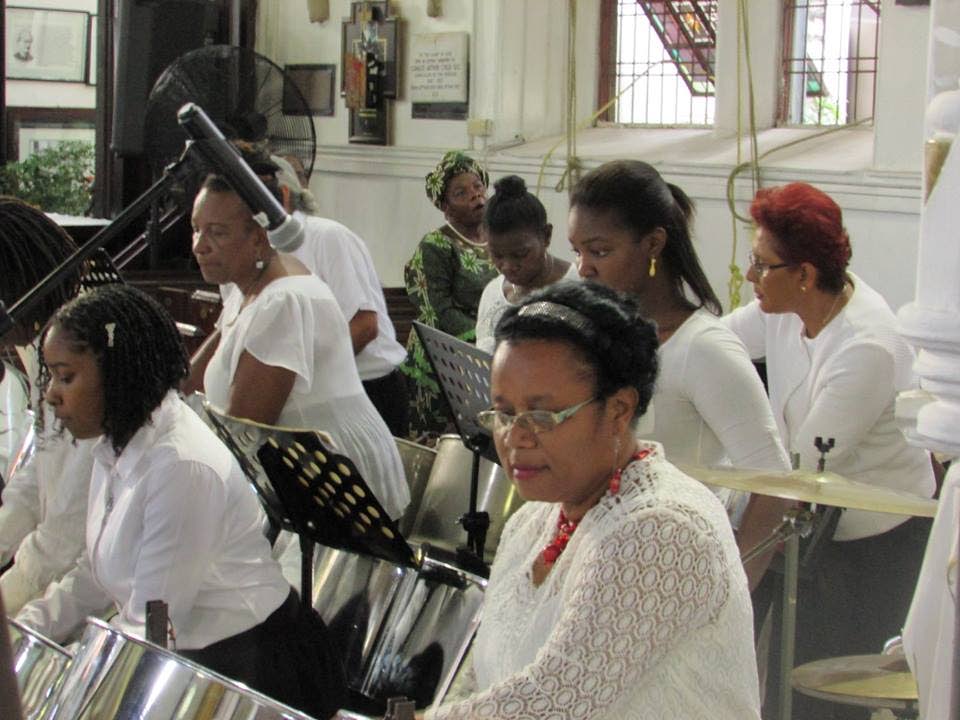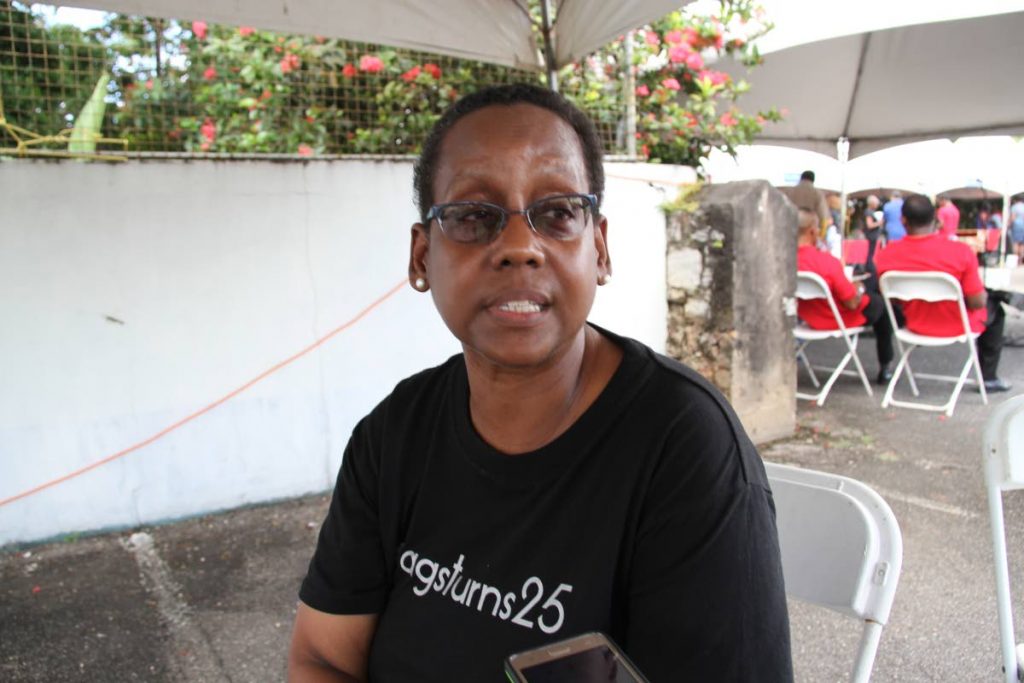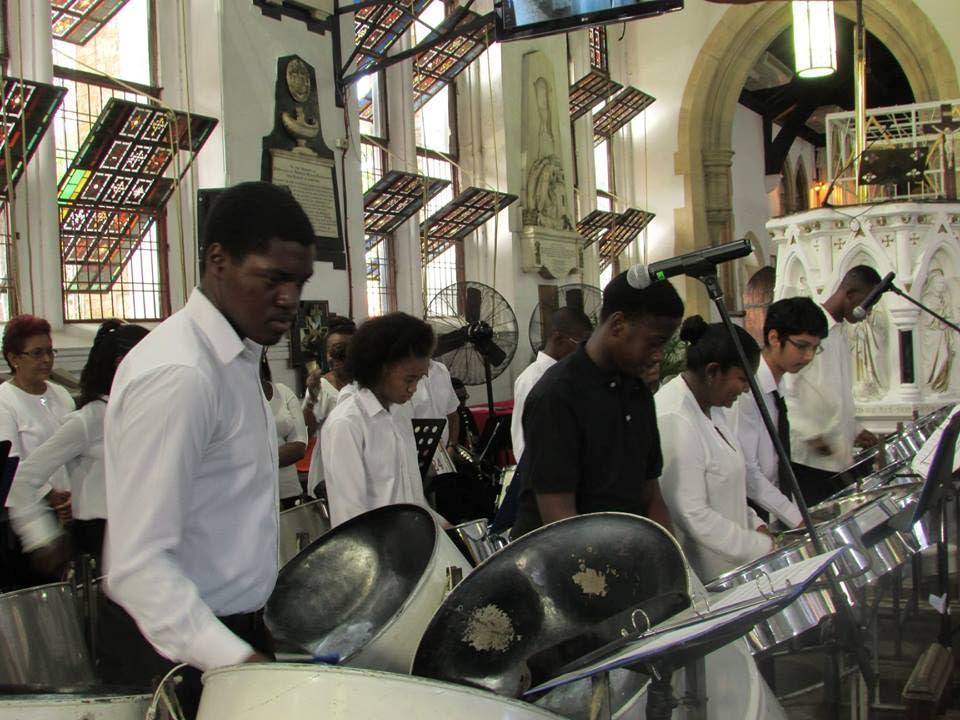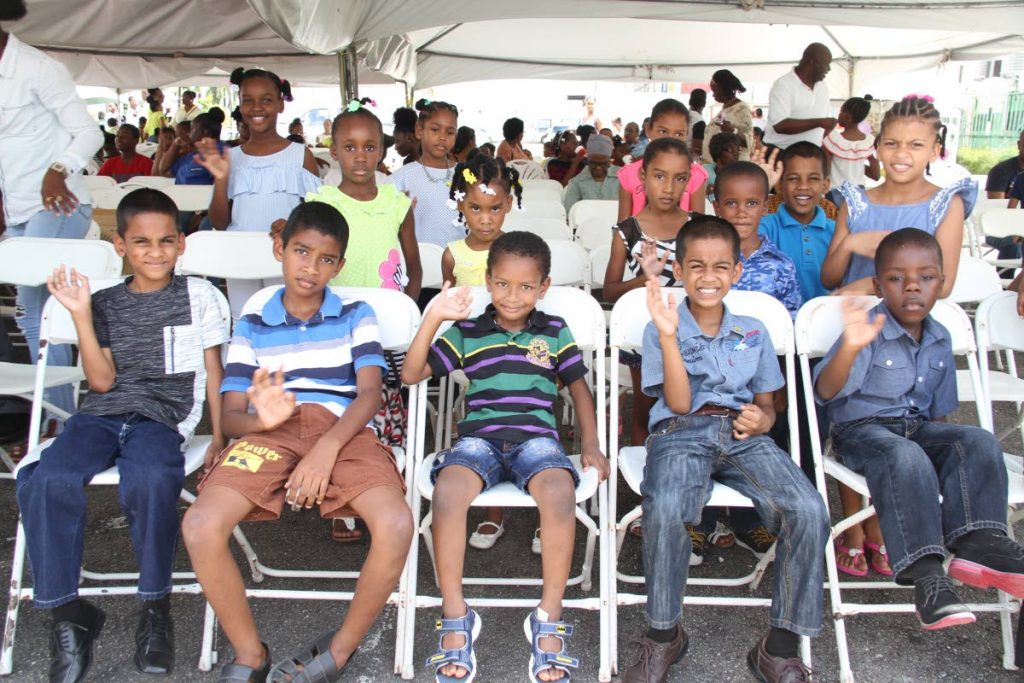TAGS’ home

WHEN Phaedra Pierre finished secondary school, she left TT and “went to the states” to do all of her studies. Pierre studied education but always loved pan.
While doing her PhD in Atlanta, Georgia, she met Jacqueline Commissiong and they grew to be “very good friends.”
“She was extremely interested in culture. Anything in Atlanta that had anything to do with the Caribbean. Caribbean culture. Pan. Carnival. Anything. We would go to together,” Pierre said.
Commissiong returned to TT in 1993, just a short while before Pierre also returned. The friendship grew upon their return.
“I was a regular parishioner here at Trinity (Holy Trinity Cathedral, Port of Spain). One day she came to church and said Phaedra, how come it does not have a steelband in the cathedral. And I said, ‘I really don’t know' because I know that when I was a teenager, Mr Melville Robin, who was the organist and choir master at that time, had wanted to start a steelband after his sister, Sylvia Robin had started one at St Columbia.
"But it just never happened and she said, ‘So it could happen now.’ And I said ‘Yeah. No problem.’ And Knolly Clarke was taking over as dean at that same period so I went to Cannon Clarke and I said, 'what about a steelband in the cathedral.' He said, ‘Yeah. That’s a good idea. Go ahead.’"
This gave birth to Trinity All Generations Steel (TAGS) School of the Arts. TAGS, Pierre said to Newsday as it held its annual Sunday brunch on November 18, has groomed national musicians including Akua Leith the current artistic director/conductor of the National Steel Symphony Orchestra. Pierre is TAGS’ principal and she has five people who work along with her in vice-principal roles.

It has been 25 years since the programme started, teaching children from as young as five, music through pan and other instruments while also teaching parents and even grandparents as well. Classes are held on a Saturday.
The school had its first brunch in 1994 as a fundraiser to purchase the pans needed. “Around this time, it was the last Sunday in November in 1994. We had started theory classes on October 22,” Pierre said.
“We cater for people of all ages but not little, little ones. We take children from about five or six and we have adults who are involved.”

The programme has attracted interest across TT. She said, “Then we have had students from Carenage, all the way up to Matura and all the way down to Penal. And that is simply by word of mouth. People come, they like what they see, they like what they are doing and that kind of stuff and they talk to somebody.”
Other Anglican churches have come to them requesting that a programme be started there also.
But the programme’s resources are all voluntary.
“It was difficult for me to now ask them to go to another church to do this somewhere else. So what we have done, in particularly in the Anglican church, we have extended an invitation to people from any church. ‘Send your people here to us. We will teach you the basics. We will teach you how to play. Teach you the music theory. We will support you going back in your parish and starting a band there,'” she said.
And this, Pierre added, has worked for two Anglican churches, St Agnes in St James and St Michael’s in Diego Martin.
“That I count as a tremendous success. I am waiting for some of the other parishes to follow suit.”

The accomplishment of TAGS’ students brings Pierre pride. Both in the Associated Board of the Royal Schools of Music (ABRSM) theory exams and Creative Arts practical exams, the average of about 50 students every year are 90 to 95 per cent successful, “and many of them get distinctions, which is passing at the highest level.”
Its students have performed “for services, concerts, opening of crèche, all of those kinds of things.”
Some of its graduates, Pierre said, are all over in the music field with “several of its past students” arranging for various steelbands.
As the programme steps into its 25th year, there are several activities planned. “One of them is going to be a panel discussion about the industry (music) and how do we break in into the industry, what are the opportunities, what are the challenges. How do we get through the challenges...,” Pierre said.
TAGS’ students don’t only learn pan although it is their primary instrument. Pierre said whenever they can get volunteers for any other instrument they do that as well. “So we’ve had a volunteer who came in and did keyboards...we’ve had guitar. We’ve had a nice volunteer for about two years who has been doing guitar with our students.”
She said there were also some years where people were interested in dance “so even though it is music, it is the arts. So if we get people to come in to do dance we do that as well.”
Pierre made an appeal for more voluntary instructors saying, “I am appealing, if people have a little time...but people who are into other instruments, we have students who are interested in playing other instruments.”
None of TAGS’ instructors are paid. The classes are also provided for free to its students. They are only asked to pay for their theory and practical exams.
Even use of the instruments is free. Besides the pans, the programme does not have the other instruments used by its students.
“As part of our 25th anniversary though, the funds that we raise from the memorabilia that we are selling as well as the events, are going into two funds.
“One is a building fund because, while we love being here at the cathedral we have one little room that is our space and it is very difficult to manoeuvre and manage all of our students in that one little space. So we are looking around for a building, a space where we can expand as a formal school.
“The other fund that the money will go to, is what I call ‘the Building-Up Fund.’ The building-up fund is scholarships for students as well as expanding our instrument base.”
At its registration in January, Pierre said they usually have 70 to 80 people who come as new students to come in and sometimes people have to be put on a waiting list.
“People come all excited in January and when they realise the time commitment... and the child has swimming and dance, sometimes we do have a waiting list so when the reality strikes and they say I really can’t manage all of this, there are people who will come in and replace those.”
At TAGS “we operate in a group basis, so I always emphasise that each one has to help one because everybody wants to learn.”


Comments
"TAGS’ home"